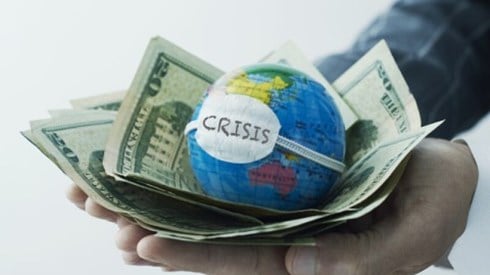Economists Urge Captive Insurance Companies To Take a Long-Term View

June 16, 2021

While inflation, central banks' eventual move away from monetary easing, and the potential for global tax reform might be factors that should be on captive insurance companies' radar, they don't appear causes for immediate concern, according to two economists.
Speaking during a session titled "The Economists' View of Resilience" during this year's virtual Bermuda Captive Conference, Henk Potts, director of investment strategy, Private Bank at Barclays, suggested that captives should focus more on the long-term than on near-term economic factors related to the COVID-19 pandemic.
"For many captives, for many investors the focus should continue to be on the longer term," he said. Global financial markets are incredibly resilient, Mr. Potts said, and demand and productivity will continue to increase, which should lead to a long-term economic expansion that leads to corporate growth over a period of time.
"We're getting to a very important transition for the global economy," said another panelist, Daragh Maher, head of FX strategy, US, at HSBC. It will be important to watch how investors respond to a change in the monetary stance as central banks move from monetary easing to monetary tightening, he said.
Regarding inflation risk, Mr. Potts noted that one concern is that inflation will lead policymakers to raise interest rates. Rising costs of essential inputs could be another inflation concern for many businesses such as manufacturers.
"This is in a way something potentially that we're thinking about," Mr. Maher said. Since the global financial crisis in 2008, people have worried about inflation, he said, but while we've seen asset price inflation over the period since, there hasn't been consumer price inflation. Now that dynamic is shifting.
"For the moment, most policymakers seem to be happy to stick with the narrative that this is a transitory phase," Mr. Maher said. "The risk is that we're all wrong."
At this point, Mr. Maher suggested signs indicate that inflation is likely to continue rising over the next 3 to 4 months, then decelerate to 2 to 2.5 percent in the United States. The situation should be similar in Europe, the United Kingdom, and Canada, he said, where inflation should settle below central banks' target levels.
Mr. Maher said he's not concerned about significant interest rate changes for now.
"I'm pretty relaxed about the rate dynamic," he said. "Obviously, if we're wrong about inflation that could change."
Mr. Potts offered a similar view. "We remain of the view that US interest rates will be on hold into 2022," he said.
Regarding the increasing debt governments have taken on as they've responded to the impacts of the COVID-19 pandemic, Mr. Potts suggested that while it will ultimately have to be addressed, for now it's not a cause for significant concern.
"Certainly, if you look at what's been taking place during the course of the pandemic it's been quite remarkable," he said, and there will be some long-term consequences of governments' fiscal responses to the pandemic.
Eventually, "public finances will have to be put back on a sustainable path," Mr. Potts said, which could include long-term constraints on fiscal policy in the form of higher taxes or government spending reductions.
But, while "the headline number has risen quite dramatically," what's important is the cost of servicing the debt, Mr. Potts said. As long as interest rates remain low, that cost of debt service remains reasonable.
Discussing the possible impact on business and captive insurance companies of global tax reform and the G7 countries' recent support for a global 15 percent minimum corporate tax rate, the economists noted that markets' reaction to the suggestion has been muted thus far, largely because the suggestion is a long way from becoming reality.
The details of such a global minimum tax will have to be worked out, and countries would have to sign on to such a plan, Mr. Potts said. "The truth is, implementation is years away from where we are today," he said.
"Where these things tend to fall apart is, yes, it's a good idea in theory, but everyone wants an exemption," Mr. Potts said. "Getting a consensus on a global tax rate is an incredibly, incredibly difficult thing to do." It might be 10 years before such a proposal could be implemented, he suggested.
Meanwhile, "Increased taxes, you'd hope, would also be offset by the higher growth trajectory caused by the stimulus," Mr. Potts said.
"It's interesting that they're able to make this announcement, but getting it over the line and getting it implemented is a completely different thing," Mr. Maher said. Still, "We have to start having conversations about how are we going to get governments to start paying all this money back," he said. "Of course, a minimum tax is going to be part of that equation.
"Maybe equity markets are happy to tolerate higher taxes in the US," he said. "I'm a little bit surprised that markets aren't a little bit more twitchy about things like corporate tax increases in the US."
The session's moderator, Craig Simmons, senior lecturer in economics at Bermuda College, noted that some people in Bermuda—a jurisdiction that doesn't tax corporate income—are nervous about the possible impact of a global minimum corporate tax. "We just don't have the infrastructure to implement this type of thing any time soon," he said.
But Mr. Potts said he doesn't see a cause for concern in Bermuda.
"I can't say Bermuda is high on our screening list of potential victims of a global tax," he said. Low tax jurisdictions will be affected, he said, but countries and their economies will adjust. "Bermuda, in my mind, will continue to do very well for a long period of time," Mr. Potts said.
June 16, 2021




